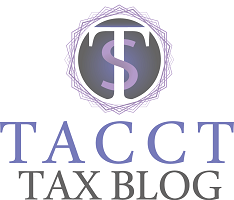
The Internal Revenue Service (IRS) announced today that the tax season will begin Monday, Jan. 29, 2018 and reminded taxpayers claiming certain tax credits that refunds won’t be available before late February. The tax deadline will be April 17 this year, so taxpayers will have two additional days to file beyond April 15.
The IRS set the Jan. 29 opening date to ensure the security and readiness of key tax processing systems in advance of the opening and to assess the potential impact of tax legislation on 2017 tax returns.
Many companies and tax professionals will be accepting tax returns before Jan. 29 and then will submit the returns when IRS systems open.
REFUNDS with EITC/ACTC
The IRS reminds taxpayers that, by law, the IRS cannot issue refunds claiming the Earned Income Tax Credit (EITC) and the Additional Child Tax Credit (ACTC) before mid-February. While the IRS will process those returns when received, it cannot issue related refunds before mid-February. The IRS expects the earliest EITC/ACTC related refunds to be available in taxpayer bank accounts or on debit cards starting on Feb. 27, 2018, if they chose direct deposit and there are no other issues with the tax return.
- This applies to the entire refund, even the portion not associated with these credits.
Tax Extenders that Ended for 2017 Returns
Claiming tax credits and deductions can reduce the size of your income tax bill or increase the size of your refund check. But not all tax breaks last forever. A number of tax benefits were on the chopping block at the end of 2016. You cannot claim the items below on your 2017 return due to the tax benefits expiring December 31, 2016:
- The exclusion for discharge of indebtedness on a principal residence [IRC §108]
- The Mortgage Forgiveness Debt Relief Act was passed in 2007 in an effort to help underwater homeowners who lost their homes to a short sale or foreclosure. The act, which allows for the exclusion of forgiven mortgage debt from income, was extended several times in the past. But it wasn’t renewed before Congress adjourned for 2016.
- Treatment of mortgage insurance premiums as deductible qualified residence interest [IRC §163]
- If you put down less than 20% when you bought your house, you’re probably paying for private mortgage insurance (PMI). Before the mortgage insurance premium deduction expired, the premiums for PMI were 100% tax-deductible for households with an adjusted gross income of $100,000 or less.
- The above-the-line deduction for qualified tuition and related expenses [IRC §222]
- Before the tuition and fees deduction expired, it could reduce your taxable income by up to $4,000.
- The nonbusiness energy credit for energy-efficient improvements to a principal residence [IRC §25C]
- You can no longer get a 10% tax credit for qualified energy-efficient improvements. Before the credit expired, it had a lifetime limit of $500. It’s also no longer possible to get a 30% tax credit for installing fuel cells in your home



